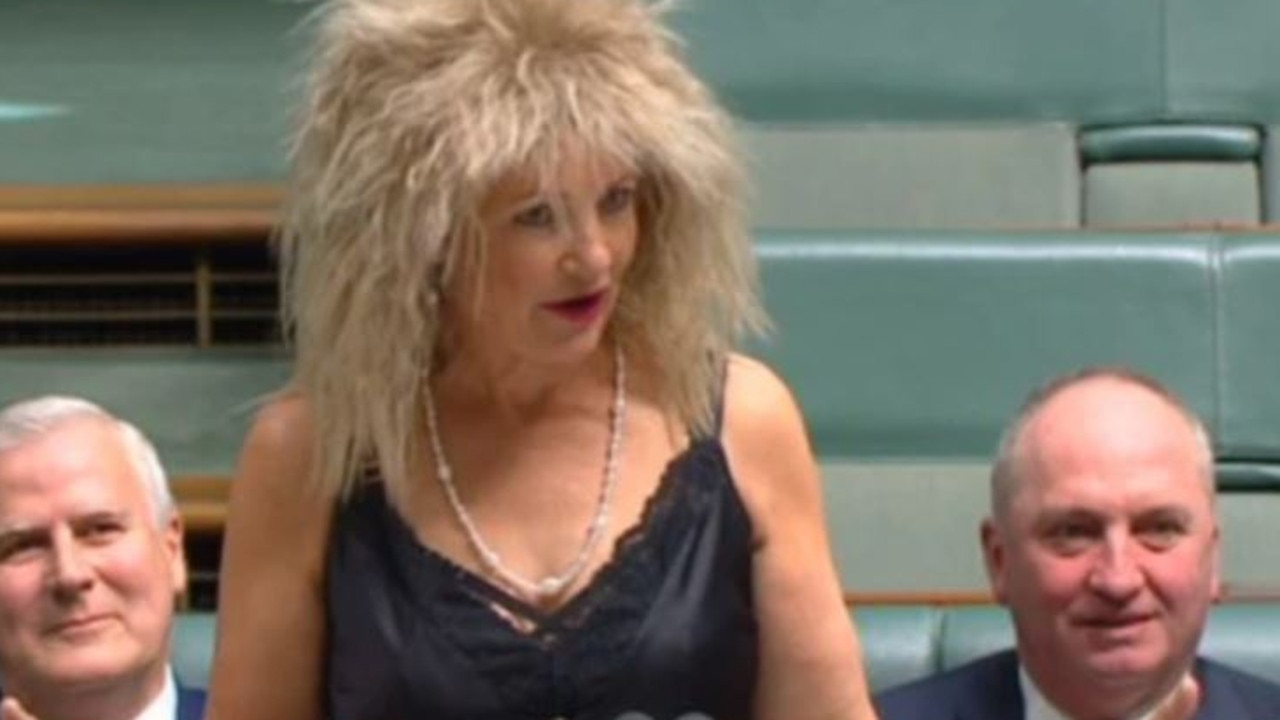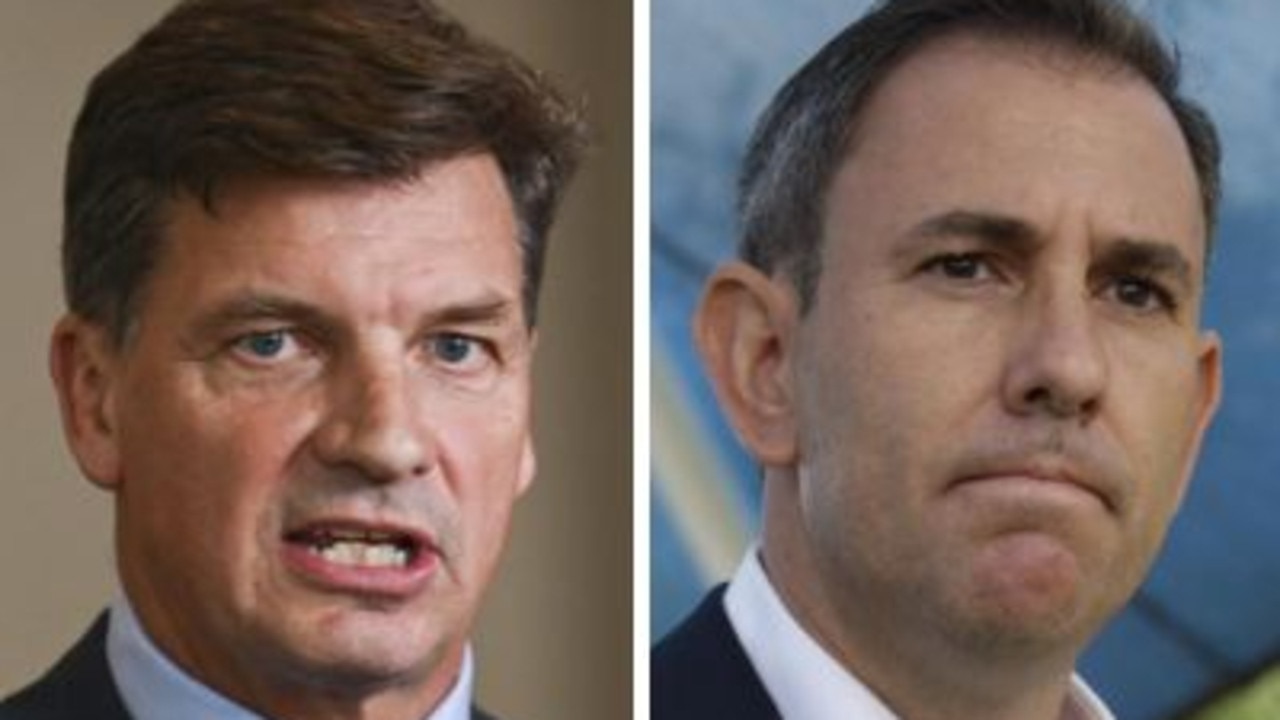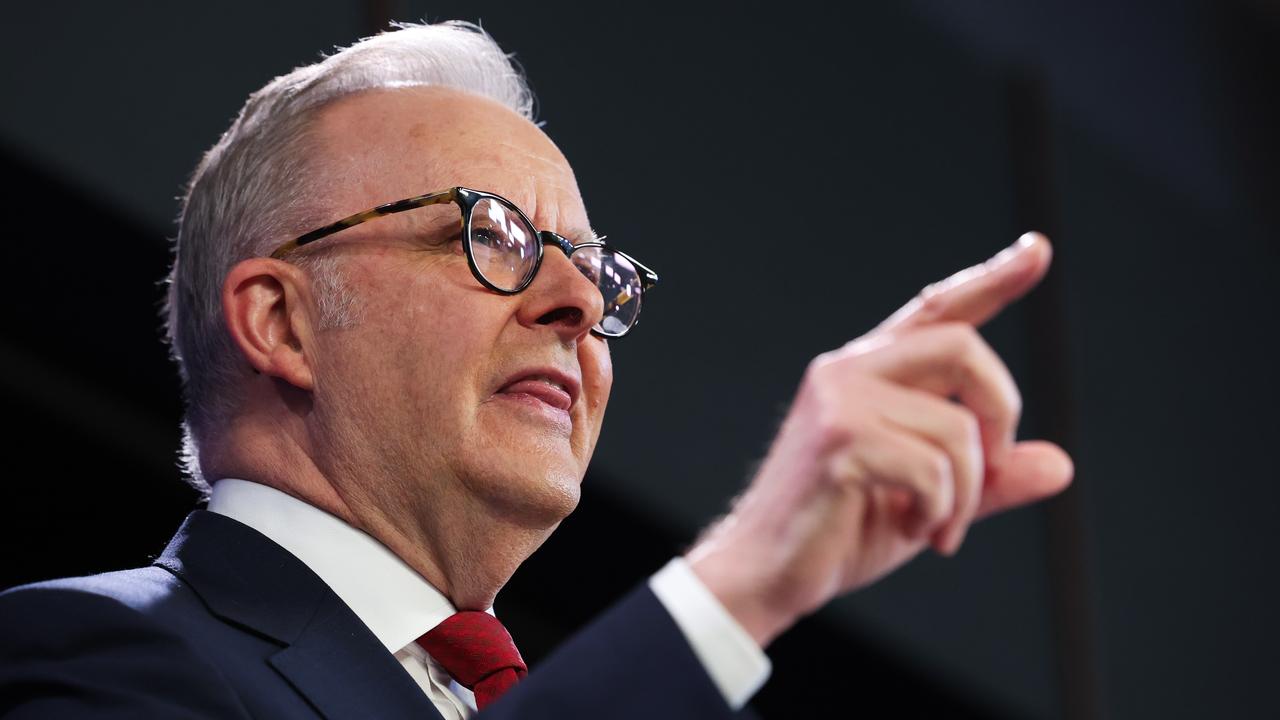All the highlights of the May 2023 federal budget revealed
Tonight’s budget is full of cash handouts and bonuses for different groups — while others will miss out. Here’s everything you need to know.
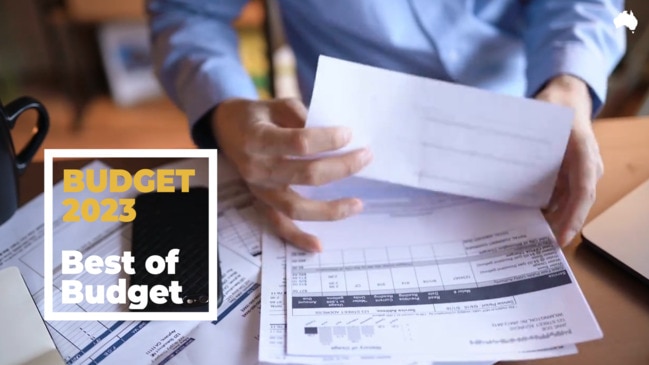
Prime Minister Anthony Albanese and Treasurer Jim Chalmers have handed down their second budget, with Labor delivering the country’s first surplus in 15 years.
But the bottom line boost isn’t expected to last long, as the government warns of “incredibly weak” economic growth on the horizon and an uncertain global outlook.
Dr Chalmers previously said the May budget would have three key priorities — cost-of-living relief, growing the economy and ensuring Australia is “more resilient to international shocks”.
“This budget will be handed down in the context of an uncertain and volatile global economy which is precariously placed,” he said in April after a short visit to Washington DC where he met with global financial leaders.
“The best antidote to global economic uncertainty is responsible economic management here at home and that’s what the May budget will represent. Low unemployment, high prices for our exports … both of those things are helping the budget right now, but the pressures on the budget are intensifying after that.”
Here is what we know so far.
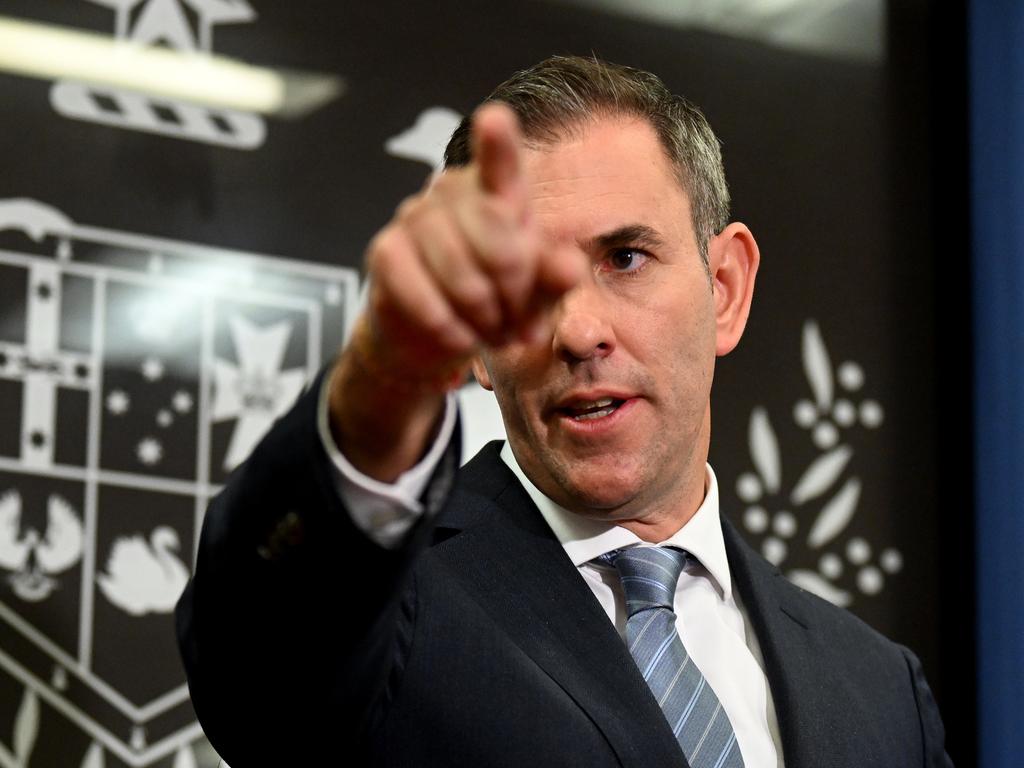
$3 billion power price relief
• A $3 billion power price relief package, initially announced in December but pushed back beyond its intended April rollout, has been repackaged as a cost-of-living centrepiece in the budget. The package, co-funded by the states and territories, will include one-off power bill discounts and subsidies for low-income households to move from gas to electricity.
Free doctor visits
• Nearly 12 million Australians have been promised more free visits to the doctor under a boost to Medicare designed to convince general practitioners to bulk bill their patients. The increased incentives will be paid to GPs who bulk bill children under 16, pensioners and other concession card holders.
GPs will be able to claim the higher incentives for face-to-face consultations more than six minutes in length as well as certain telehealth consultations.
Rental relief
• The budget has forecast rents will pick up as the rental market tightens over the year. More than 1.1 million households receiving the maximum Commonwealth Rent Assistance are set to benefit when the government beefs-up the rate to 15 per cent.
Skilled migrants boost
• The temporary skilled migration income threshold will be lifted from the current rate of $53,900 to $70,000, reflecting the level it would have reached if it had been indexed to wages a decade ago.
Crackdown on gas producers
• Big oil and gas producers will have their tax deductions capped and face tougher tax compliance measures as part of a budget crackdown estimated by Treasury to raise $2.4 billion over four years. The biggest revenue raiser out of the 16 technical petroleum resources rental tax (PRRT) changes will be limiting annual deductions for expenditure at 90 per cent of the project’s income each year from July 2023.
Working families to miss $500 bonus
• However, it has since emerged that thousands of working families will miss out on the electricity bill relief worth up to $500 in the budget under an income threshold cut-off. The Treasurer confirmed in an exclusive interview with news.com.au that relief will be targeted to pensioners, Commonwealth Seniors Health Card holders and households receiving income support including Family Tax Benefit A and B. For families with one child, FTB is cut off after you reach a combined income of more than $108,000. So that means a primary earner on $70,000 a year with a spouse earning just $48,000 is deemed too wealthy to qualify. FTB is more generous depending on how many children you have, however. For example, if you have two teenage children, you can have a combined family income of up to $117,000 before you miss out on FTB and the energy relief. And if you have three teenage children, you can have a combined family income of up to $140,000.
‘Historic’ pay rise for struggling aged care sector
• The Treasurer says the federal government has gone “out of its way” to carve out $11.3 billion over the next four years to boost the pay for 250,000 aged care workers. A cornerstone election promise of the Albanese government, backed up by the Fair Work Commission, the “historic” 15 per cent pay rise for hundreds of thousands of aged care workers across the country will come into effect on July 1, with the full cost contained in the budget.
Oil and gas companies cop tax increase
• The government has confirmed tax hikes on oil and gas companies, after warning the industry Australians may not be getting a reasonable return from exports of their natural resources through the Petroleum Resource Rent Tax (PRRT), particularly amid ongoing high prices and near-record export levels. New forecasts show the industry is on track to nearly triple its revenue payments to state and federal governments this financial year, from $6.46 billion to $16.26 billion. Industry Minister Ed Husic said oil and gas companies were “doing very well” and could therefore “price in a much more moderated way”. The Treasurer has announced that oil and gas companies will pay an extra $2.4 billion in PRRT on their offshore liquefied natural gas projects over the course of the next four years. It will kick in from July 1, and deductions will be capped at 90 per cent.
Pricier cigarettes as tobacco tax hiked again
• Tobacco companies will have to pay an additional $3.3 billion in tax over the next four years in a bid to drive up the price of cigarettes and stop Australians smoking. Health Minister Mark Butler announced the tobacco excise will increase by 5 per cent per year over the next three years from September 1, with the full amount coming into play by 2026. “The excise stopped increasing in about 2020 and since that time, excise increases have actually started to lag inflation, particularly last year,” he said. “We know that a higher price cigarette is a more unattractive cigarette.”
Jobseeker payments to increase
• Jobseeker is set to increase by $40 a fortnight, or about $2.85 per day. The PM had been under pressure to increase the Jobseeker payment from its current rate of $347 a week, or just under $50 a day, to around $1000 a fortnight, or about $68 a day — 90 per cent of the Age Pension — as recommended by the Department of Social Services’ Economic Inclusion Advisory Committee. The government had said the $24 billion cost to the budget was something it can’t afford, and floated an increase only for recipients over 55. But it turns out the budget includes an increase across the board, plus for those on Austudy, Youth Allowance and other payments.
Flavoured vapes banned in massive crackdown
• Australia is set to ban the importation of most vapes, introduce plain packaging and strip them from convenience store shelves under world-first reforms. The biggest crackdown on e-cigarettes in Australian history was unveiled in the budget amid fears vaping has emerged as a serious behavioural crisis in schools across the nation. The budget will include $234 million to fund the new measures.
Government delivers first surplus in 15 years
• The federal budget eked out a “wafer thin” surplus, which economist Chris Richardson said represented a “stunningly strong” turnaround in the underlying cash balance of $204 billion in 25 months, with rising terms of trade and inflation the two big drivers. The government is now eyeing its first surplus in 15 years for the full 2022-23 financial year.
But it will be followed by a deficit of $13.9 billion in 2023–24, and lower deficits across the forward years compared to recent budgets, leading to a $125.9 billion improvement over five years.
Single parent payment extended
• The single parenting payment will be extended until the youngest child is 14. Currently, Australians receiving the payment, predominantly women, are shifted to the less generous Jobseeker payment when their youngest child turns eight and lose about $100 a week as a result. The payment originally was made until the youngest child turned 16, but it was slashed down to eight under John Howard, with the Gillard government then ending the grandfathering that was attached to the scheme. The new change means an extra $176.90 every fortnight for eligible single parents.
$50,000 bonus if troops re-enlist for three years
• In an effort to address a recruitment and retention crisis within the ADF, the government will offer approximately 3400 soldiers a $50,000 bonus to re-enlist for an additional three years after their initial service period. The plan will cost $400 million over the forward estimates. It comes after resignation rates hit a decade-high last year.
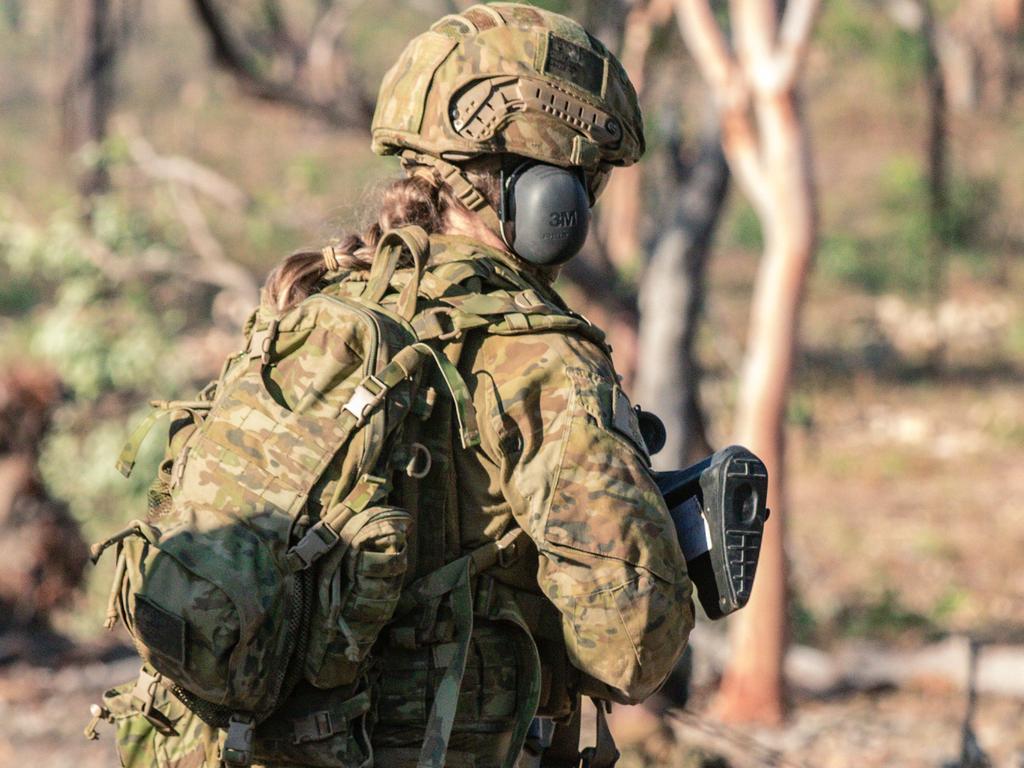
Cheaper medicines and more scripts
• An estimated six million Australians will be allowed to buy twice as many common medicines for the price of one script under a shake-up of the Pharmaceutical Benefits Scheme (PBS). The proposal has sparked backlash from the powerful Pharmacy Guild, which fiercely campaigned against the reform and warned it would lead to medicine shortages.
Major action against SMS scammers
• Australia’s plague of SMS scams will be tackled with $10.9 million to launch the country’s first SMS Sender ID Registry and help prevent scammers from spoofing industry or government brand names — such as Linkt or myGov — in text message headers. The registry is intended to assist telcos stop scammers from imitating trusted and established brand names through SMS. The government will also commit $17.6 million to take down investment scam and phishing websites.
‘Payday super’ to save workers thousands
• Millions of Australians will be better off under a budget plan to finally force employers to pay super on payday instead of hoarding the cash. Under the big changes, penny-pinching employers will be required to pay super contributions at the same time as wages. According to super experts, it would result in some younger workers today being better off by $50,000 at retirement.
$20,000 energy boost for small businesses
• Up to 3.8 million small and medium businesses will be eligible for up to $20,000 in tax relief to invest in equipment to cut their energy bills, such as converting from gas to electricity, installing more efficient fridges, induction cooktops, batteries and heat pumps. The Small Business Energy Incentive will cost $314 million over four years.
10 million Aussies face ‘substantial’ tax hike
• More than 10 million Australians earning under $126,000 a year will be up to $1500 worse off this tax time as the $11 billion low- and middle-income tax offset (LMITO) — the Lamington — finally comes to an end. The offset was first introduced by the Turnbull government in the 2018-19 financial year and increased twice, from $530 to $1080, then to $1500 by Treasurer Josh Frydenberg last year. Economist Chris Richardson told The Sydney Morning Herald last month the effect of the offset ending would be felt by households already struggling with rising cost of living. “We’re talking a substantial amount of money,” he said. “It’s the equivalent of two interest rate rises.”
Upgrade to emergency services communication
• As the country stares down the barrel of an increasing number of devastating natural disasters, a significant upgrade to Australia’s emergency warning communications is set to save lives. The government says the national messaging system — to be developed and tested over the next 18 months and be operational by 2024 — will deliver instant, prioritised emergency messages to all mobile devices in a specific area, regardless of the person’s service provider.
Mates, siblings can buy homes together
• Siblings and friends wanting to buy a house together will be eligible for a federal government boosting, as part of a significant overhaul to three home-buying schemes. The first home guarantee, which had previously only been available to married or de facto couples, and singles will expand the definition of a “couple” — opening the scheme up to pairs of friends and family members.
Hundreds of ScoMo’s projects could be scrapped
• Hundreds of infrastructure projects across the country will be probed and potentially scrapped under a wide-ranging review commissioned by the Albanese government. The 90-day independent review, announced by Infrastructure Minister Catherine King, will probe the 10-year, $120 billion pipeline – which she said had been blown out from 150 projects to nearly 800 “press release” projects under a decade of Coalition governments.
Tassie to enter AFL with Hobart stadium
• The PM has announced $240 million in funding for a multipurpose stadium in Hobart, which would fulfil the AFL’s requirements for a 19th team in Tasmania. Not everyone is happy about the “once-in-a-generation” urban renewal project, with hecklers hijacking Mr Albanese’s press conference to demand affordable housing instead.
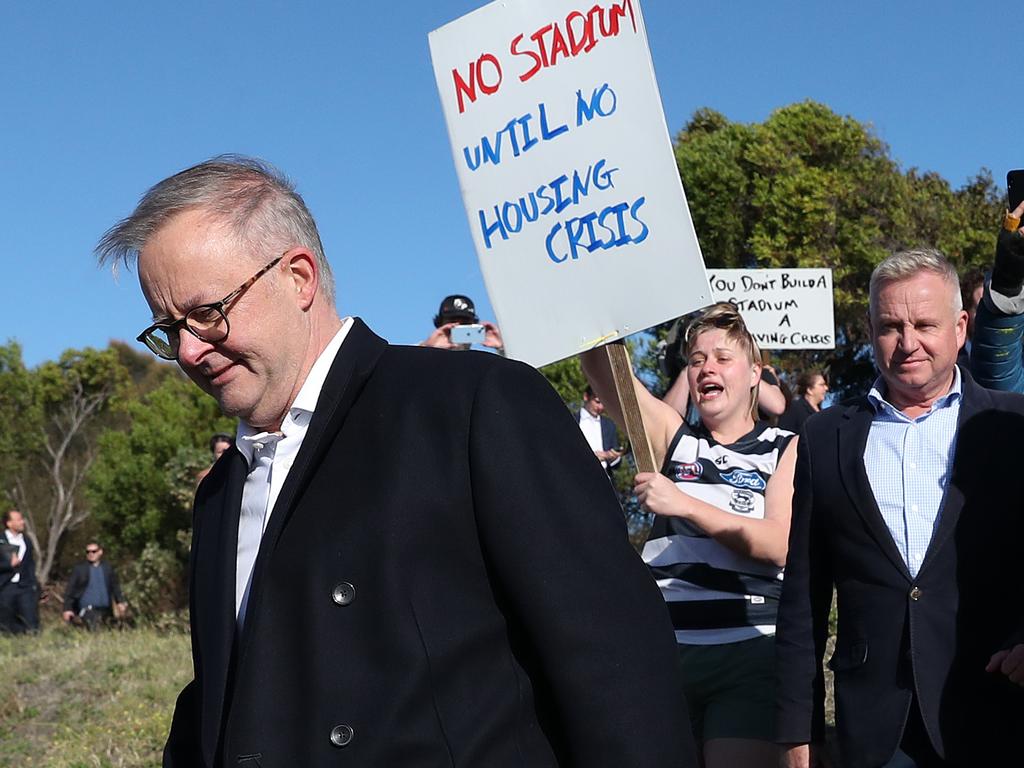
$768 cash boost for young carers
• Young people aged 12 to 25 who are caring for a loved one will get a cash boost so they can continue their education. The nearly $10 million funding increase to Carers Australia’s Young Carer Bursary Program will be increased from $3000 to $3768, and the number of bursaries offered will increase by nearly 60 per cent to around 1600 each year over the period 2023 to 2025.
$50 million for Long Covid research
• The Medical Research Future Fund will receive a further $50 million for research into post-acute sequelae of Covid-19 (PASC) — commonly known as Long Covid. The funding was announced after the publication of the final report from parliament’s Long Covid inquiry.
$6 million to Good Friday Appeal
• The Good Friday Appeal, which has been fundraising for the Royal Children’s Hospital in Melbourne since 1931, will receive $6 million over three years. The money will “help fund life-changing treatment, world-class research, leadership and training, to attract the brightest minds to help care for kids from Melbourne, Victoria and across Australia”.
Crashes tackled via Black Spot program
• Dangerous crash sites will be improved through the federal government’s Black Spot Program. Safety measures and road upgrades will be funded for 24 locations in Western Australia to the tune of $12.6 million, while Queensland will receive $21.7 million for 38 sites.
EV chargers to tackle ‘range anxiety’
• The federal government’s Driving the Nation Fund will provide $39.3 million to the NRMA, which will match the funds to build 117 fast electric vehicle chargers across Australia’s national highways. The infrastructure will “make it possible to drive from Darwin to Perth, Broken Hill to Adelaide, and Brisbane to Tennant Creek” and help address “range anxiety” — a commonly cited barrier to purchasing electric vehicles.
National cultural institutions ‘revived’
• Australia’s nine major “national collecting institutions” — including the Maritime Museum, Old Parliament House, the National Archives and the Portrait Gallery — will receive $535.3 million over four years to undertake urgent repairs and improvements. Arts Minister Tony Burke said it was “a disgrace that the former Coalition government allowed these institutions to fall into such a shocking state of disrepair”.

Government-funded cadet journalists
• Up to 56 new cadet journalists are hitting the beat in 38 regional newsrooms after being awarded grants through the first round of the $5 million Australian Government Journalist Fund, which was announced in October’s budget. The second round of the fund, which contributes 70 per cent of each two-year, $150,000 package, is now underway.
More cash after cashless welfare axed
• The government has announced an additional $25 million to support former cashless debit card program communities through extending existing services and delivering new initiatives across Ceduna, Bundaberg-Hervey Bay, Goldfields, East Kimberley and the remote Northern Territory.
Great Barrier Reef water quality
• An additional $150 million will be spent to improve the quality of water flowing to the Great Barrier Reef. The funding will support initiatives to protect and restore land in catchments with the largest amount of fine sediment run-off, which can cause higher algal growth, pollutant build-up, and reduce light for corals and seagrass.
Extra flood relief for QLD and WA
• In response to recent flood events in the Gulf of Carpentaria and the Kimberley, an additional $4.4 million will go to 83 emergency and flood relief providers across Queensland and Western Australia to help people access essential items such as food, clothing and petrol.
Auslan, wheelchair boost for workplaces
• To make workplaces more accessible for those with disabilities, the government is raising funding caps for the Employment Assistance Fund (EAF) for the first time in 13 years. The funding cap for Auslan services will double from $6000 to $12,000 annually, while the building modifications cap will also be doubled from $30,000 to $60,000.
— with NCA NewsWire
Read related topics:Anthony Albanese




